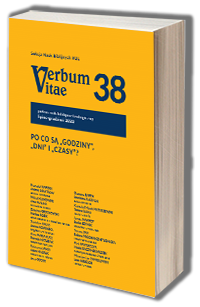The Concept of Time in “Enarrationes in Psalmos” by Saint Augustine
The Concept of Time in “Enarrationes in Psalmos” by Saint Augustine
Author(s): Bogdan CzyżewskiSubject(s): Theology and Religion
Published by: Katolicki Uniwersytet Lubelski Jana Pawła II - Wydział Teologii
Keywords: Augustine; psalms; time; eternity; man; passing
Summary/Abstract: What is time? What is its nature, designation and aim? Saint Augustine attempted to resolve these and other questions in his greatest exegetical-homiletical work, Enarrationes in Psalmos. The Bishop of Hippo, commenting on particular verses of the Davidic Psalms, comes to the conviction that time is a variable and fragile value, just like the world and man, which are subject to its laws. The time created by God had a beginning, it abides, and it will have an end. However, this does not mean that the passing of time should be viewed only in a negative sense, for at a concrete moment in time the Son of God became incarnate in order to save man. Time also exists so that man has an opportunity to be converted and to enter eternity. For the Bishop of Hippo, there is no concept of time in eternity, which is changeless and lasts forever. In his conception of time, we can see not only its pure physical aspect, but above all, its theological dimensions. In particular, it contains a message for man that refers not only to the present, but predominantly to the future, to an eternity that inspires great optimism for all people.
Journal: Verbum Vitae
- Issue Year: 2020
- Issue No: 38
- Page Range: 247-262
- Page Count: 16
- Language: English

